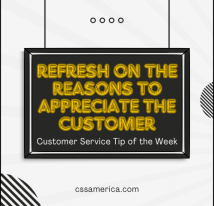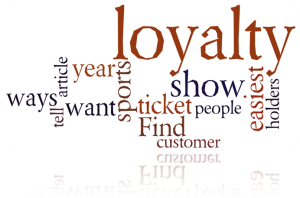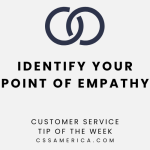 Voice of the Fan – we use that phrase with many of our clients, but to clarify its meaning, sometimes it helps to look at examples.
Voice of the Fan – we use that phrase with many of our clients, but to clarify its meaning, sometimes it helps to look at examples.
The University of Florida’s “University Athletic Association” (UAA) is forming a fan advisory group that will provide feedback on how to improve the fan experience at UF football games, in particular. According to the article UAA to improve gameday experience through new fan advisory council, the advisory group “will select representatives from several season-ticket-holder demographics, including current students and boosters…The issue that needs to be discussed is how we can help students come in, but at the same time help people who have been season ticket holders for 40 years still have a good time at the game.”
These comments go to the heart of why a Voice of the Fan strategy is so important in sports. We can’t make the assumption that all fans are the same. Conversely, we can’t make the assumption that the long-time fans don’t matter – which often turns out to be a concern in the heavily marketing/sales-oriented world of sports.
We have to develop a strategy of dialogue with our fan base, that not only includes the surveys and 1-on-1 discussions with staff, but it also includes the sit-down discussions that get you depth on issues, creativity on solutions, and the fan’s perspective on potential changes being considered for the future.
Develop a Voice of the Fan approach that has at least these characteristics:
- Includes a quantifiable component to evaluate multiple aspects of the fan experience, preferences, renewal drivers, etc.
- Includes trended data through ongoing (including real-time) research or point-in-time annualized surveys.
- Includes Focus Groups for deep dives on specific issues or about consideration of future changes/improvements.
- Includes Advisory Boards that provide some consistent feedback mechanism as ideas are developed, refined, and moved toward implementation.
- Crosses all key demographics or fan types.
- Has predictive characteristics about retention/growth likelihood.
- Uses multiple platforms (face-to-face, web, social media, e-mail, telephone, etc.) to ensure breadth of response.
- Results in actionable information.
- Shares back with fans the results and actions taken.
When you’re thinking about an advisory board, focus group, survey, or other research method, first make sure it’s getting at the voice of your true fans. Create a strategic approach to listening to and utilizing the Voice of the Fan.
Did you like this post? Here are other Sports-related posts:
- In Sports, Does Loyalty Matter Anymore?
- The Cubs Way of Changing a Culture and Improving Revenue Retention
- Smart 1-to-1 of Season Ticket Holder Research
Learn about our CSS Sports services at: http://cssamerica.com/sports/






















